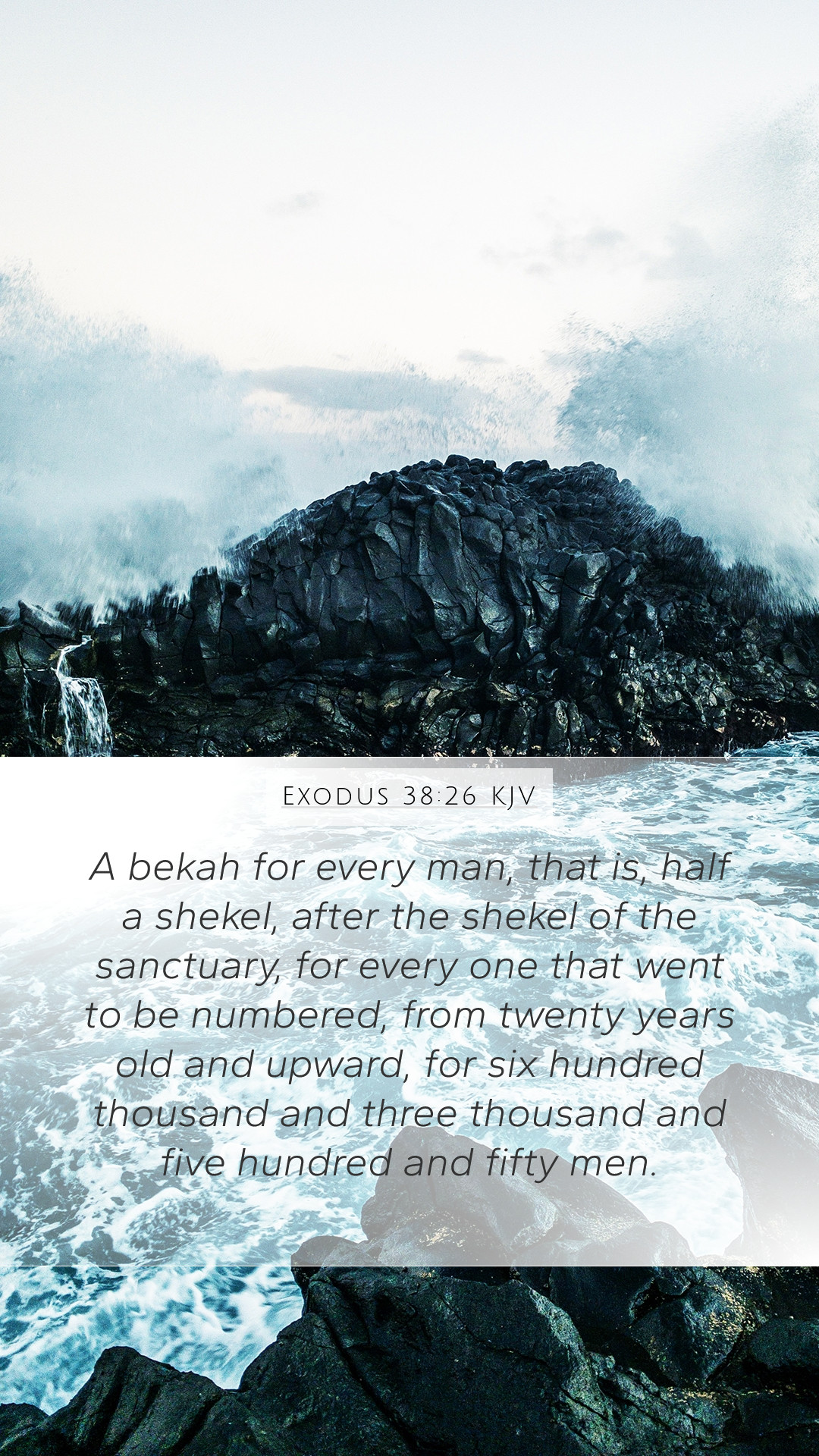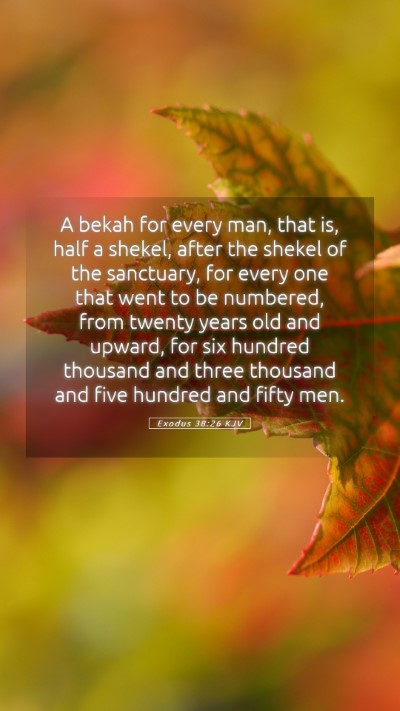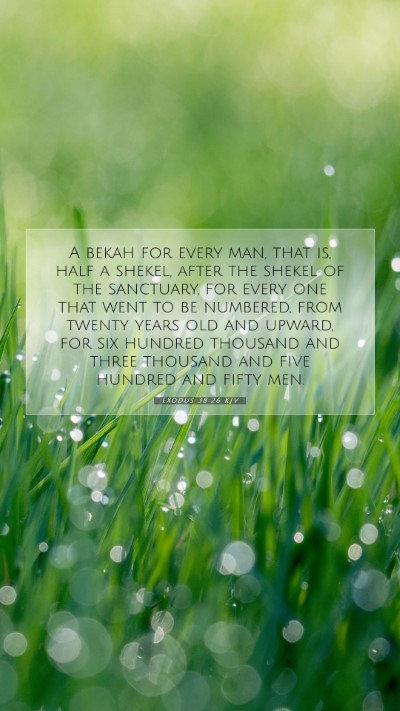Understanding Exodus 38:26
Exodus 38:26 states: "A bekah for every man, that is, half a shekel, according to the shekel of the sanctuary (a shekel is twenty gerahs): a half shekel shall be the offering of the Lord." This verse provides valuable insights into the concept of offerings and the importance of communal contribution in building the Tabernacle.
Bible Verse Meanings
This verse emphasizes the mandatory contribution that each individual must make, symbolized by the "bekah" which is a half-shekel. This contribution is not merely a financial obligation but a symbolic act of devotion and unity among the people of Israel. The half-shekel exists as a means to establish a commonality among the Israelites, affirming that everyone, regardless of wealth, has a part in the Lord's work.
Bible Verse Interpretations
- Matthew Henry: He notes that the census represented by this offering is a way for God to keep the people accountable to Him. Henry explains that this offering serves to acknowledge God as the provider, reiterating the principle that God requires a portion of our resources in acknowledgment of His blessings.
- Albert Barnes: Barnes elaborates on the significance of the "shekel of the sanctuary," indicating it symbolizes the holiness of the temple and the resources required to sustain it. He highlights how these offerings were a collective expression of faith, mirroring the importance of community in worship.
- Adam Clarke: Clarke stresses that the necessity for an offering from everyone serves as an equalizer, showing that in God's eyes, all contributions, no matter the size, hold equal weight and importance. This gives a strong message of equality within the community of believers.
Bible Verse Understanding
The essence of Exodus 38:26 transcends mere financial contributions; it encapsulates the values of unity, equality, and collective responsibility within the faith community. The offering is termed "the offering of the Lord," emphasizing that our resources are ultimately dedicated to His service, and thereby invoke a spirit of stewardship and communal engagement.
Bible Verse Explanations
In exploring this passage further, we can recognize its continued relevance to contemporary faith communities. It illustrates that every member’s involvement is crucial, not only in physical contributions but in spiritual investment within their community. The command involves a sacred act of giving, symbolizing commitment to God and His purposes.
Significance of the Verse
Exodus 38:26 also presents an opportunity for self-reflection on how one’s individual contributions—whether time, resources, or talents—impact broader spiritual initiatives and the community of faith as a whole.
Applications in Daily Life
This verse encourages believers to consider the financial and non-financial contributions they make toward their communities, urging participation in active stewardship, whether through donations, volunteer work, or spiritual support.
Cross References
- Exodus 30:13-15: Discusses the half-shekel offering in the context of a census.
- 2 Corinthians 9:7: Stresses the importance of cheerful giving in the New Testament context.
- Matthew 17:24-27: Relates to the concept of temple taxes and Jesus' teachings on contributions.
Conclusion
Exodus 38:26 encapsulates vital themes of community, equality, and ownership of God’s work among His people. This verse serves as a reminder that every member in the body of believers has a role in contributing to the collective holiness of their community. By studying such verses deeply, believers can gain a richer understanding and develop a more profound appreciation for the contributions they make to the work of God.


